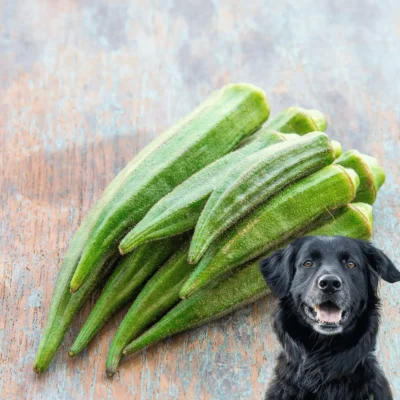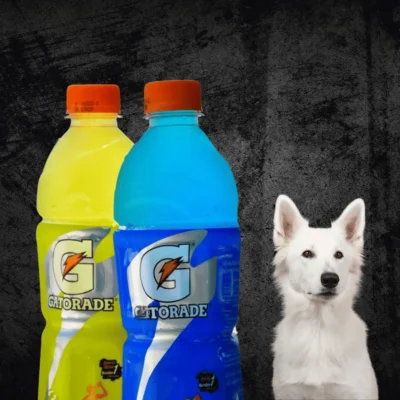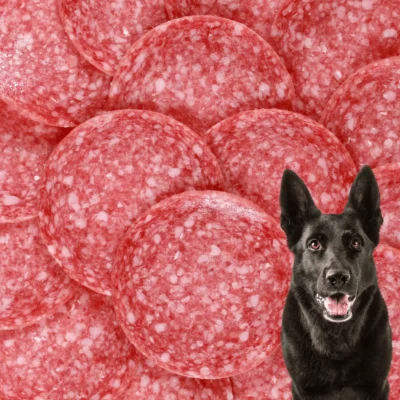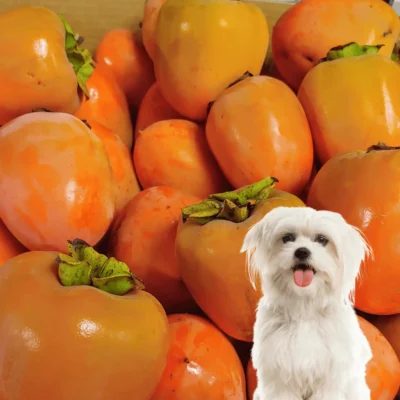Marzipan, also known as ‘almond candy dough,’ has gained popularity, especially during the holiday season, when it frequently takes the spotlight in various treats. However, when it comes to our furry friends, the answer to whether dogs can eat marzipan is a firm no.
While the holiday season brings an abundance of tasty treats, not all of them are suitable for dogs. Despite Marzipan seeming like a tempting idea for our canine companions, it’s not a wise choice. To delve deeper into why marzipan is off-limits for dogs, let’s explore more about this sweet delight.
Here are the topics we are going to discuss in this blog post:
- What is Marzipan?
- Can Dogs Eat Marzipan?
- Does Marzipan have Any Benefits for Dogs?
- Why Should You Not Give Marzipan to Your Dogs?
- When to Seek Veterinary Care for Your Dog
- Many Better Options for Your Dogs
What is Marzipan?

Marzipan is a sweet, candy-like mixture made primarily from ground almonds with sugar, corn syrup, and egg whites. It has a smooth texture and is often used in cake decoration, sculpting into various shapes, or as a filling for pastries and chocolates. Marzipan is known for its slightly nutty flavor and is popular in many culinary traditions around the world.
People aren’t quite sure where it originally came from—some say Persia, others claim Germany, Spain, Italy, or France. It got so popular in Spain that they took it to the Americas, where they started making it with peanuts instead of almonds.
Regardless of its roots, one thing is for sure: we know it best during Christmas. While you can find marzipan-covered treats all year, it shines with special goodies like Germany’s stollen cake and France’s Yule logs.
Can Dogs Eat Marzipan?
The answer is no. Marzipan, made from sugar and ground almonds, is not something dogs need in their diet. Dogs can have trouble digesting the almond protein, leading to digestive issues. Almonds are high in fat and sugar, making them tempting but not suitable for canine consumption.
No matter how much your puppy might beg for marzipan or Mexican candy during the holidays, it’s not a safe option. These treats often contain harmful ingredients like sugar, xylitol, nuts, and chocolate, which can lead to severe health problems in dogs, including kidney damage, digestive issues, and even death.
Even seemingly innocent treats like marshmallows are low in nutritional value and can cause health problems for dogs. Regardless of their size, it’s best to avoid giving any sweets to your puppy. Instead, opt for more nutritious alternatives, like toys or bones, to treat your dog during the holiday season.
Does Marzipan have Any Benefits for Dogs?
While marzipan contains some beneficial elements such as calcium, potassium, magnesium, and vitamin B, the overall risks associated with its high-fat content and sugar levels outweigh the potential benefits for dogs. Marzipan is primarily made from almonds, which can be difficult for dogs to digest due to their high-fat content. Additionally, marzipan often contains high levels of sugar, which can lead to obesity, dental issues, and other health problems in dogs.
While the individual components of marzipan may offer some nutritional value, it’s not a recommended source for these nutrients in a dog’s diet. There are safer and more suitable ways to provide essential vitamins and minerals to your dog without the potential negative effects of marzipan. It’s always advisable to consult with your veterinarian to ensure your dog’s diet meets their specific nutritional needs.
Why Should You Not Give Marzipan to Your Dogs?
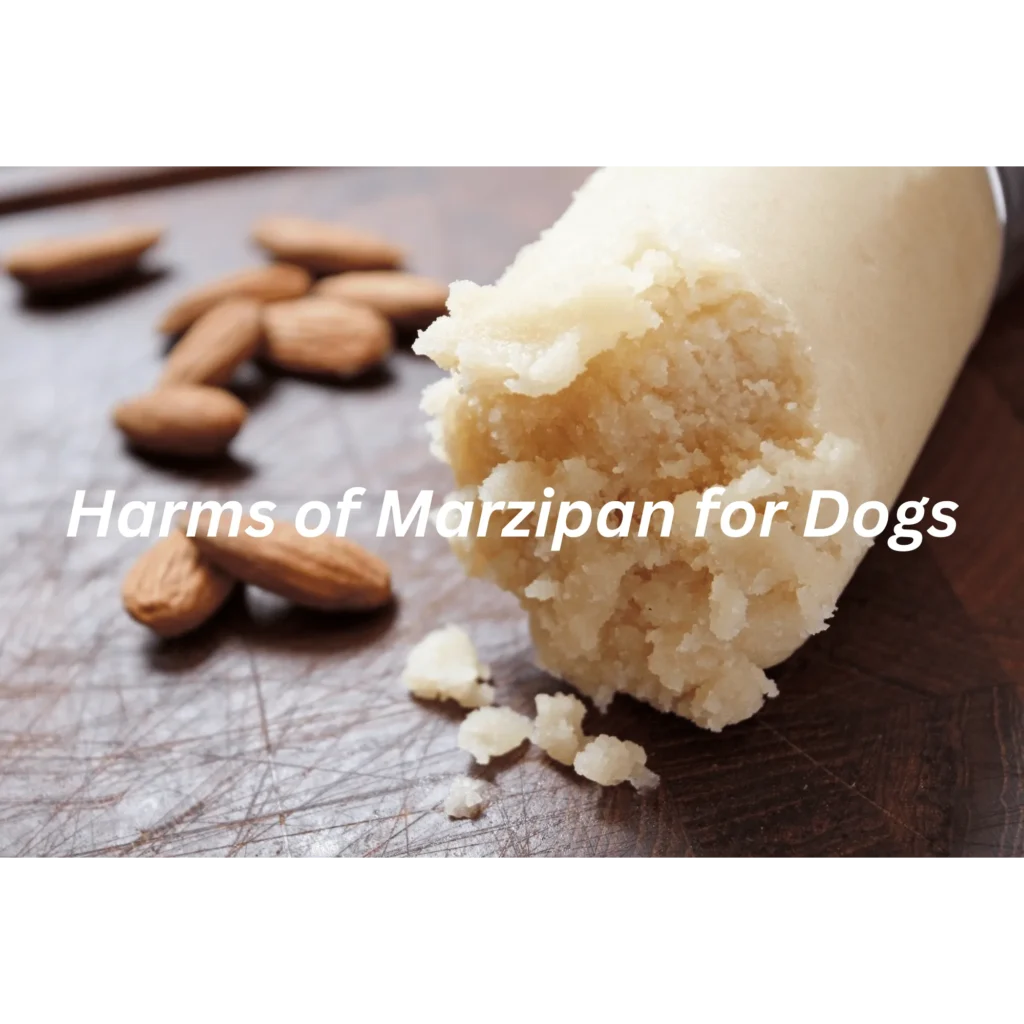
Avoiding marzipan as a treat for your dog is a wise choice, and here are three key reasons why:
1. High Sugar Content:
Marzipan typically contains a significant amount of sugar. Excessive sugar intake can contribute to weight gain in dogs, leading to obesity. Obesity is a serious health concern that can impact a dog’s overall well-being and lifespan.
Sugary treats can contribute to dental issues such as cavities and gum disease in dogs. Poor dental health in dogs can result in pain, discomfort, and difficulty eating.
Regular consumption of high-sugar foods may increase the risk of diabetes in dogs. Diabetes can result in chronic health issues that require careful management and monitoring.
2. Almond Content:
Almonds can be challenging for dogs to digest, potentially leading to gastrointestinal upset, including stomach pain, diarrhea, or vomiting.
Some dogs may have allergies to almonds. Allergic reactions can vary from mild symptoms like itching and skin irritation to more severe reactions, such as difficulty breathing.
3. High Fat:
The high-fat content in marzipan poses a significant risk to dogs, as they can be susceptible to pancreatitis. Consuming high-fat foods can trigger serious inflammation of the pancreas, leading to severe pain and discomfort for dogs. Therefore, it’s crucial to avoid giving marzipan or similar high-fat treats to your furry friend.
Regular consumption of high-fat treats, such as marzipan, can contribute to weight gain in dogs. Obesity is associated with various health problems and can reduce a dog’s overall quality of life.
4. Additives and Flavoring:
Some additives and flavorings used in marzipan may be harmful or even toxic to dogs. Common additives, like chocolate or certain artificial sweeteners (e.g., xylitol), can have severe adverse effects on a dog’s health.
Dogs may have allergies to specific additives or flavorings in marzipan, leading to allergic reactions such as itching, swelling, or gastrointestinal distress.
5. Caloric Density:
Marzipan is calorie-dense, and excessive calorie intake can contribute to weight gain in dogs. Obesity is a significant health concern associated with various medical issues, including joint problems, diabetes, and decreased life expectancy.
While dogs enjoy treats, it’s crucial to ensure that these treats complement their regular diet and nutritional needs. High-calorie treats like marzipan may lead to an imbalance in essential nutrients.
When to Seek Veterinary Care for Your Dog:

While marzipan is not considered toxic to dogs, it’s important to be cautious about their consumption due to the high sugar and fat content, which can lead to health issues. If your dog ingests a small amount of marzipan, you may not need to rush to the vet. However, if they consume a significant quantity, it’s crucial to monitor them closely.
If severe signs, such as vomiting, diarrhea, lethargy, or any other unusual behavior, start to develop, it’s recommended to seek veterinary attention promptly. Ingesting large amounts of sugar or fat can potentially lead to pancreatitis or other digestive problems in dogs, which may require professional intervention. Always keep an eye on your dog’s well-being and consult with a veterinarian if you have concerns about their health.
Many Better Options for Your Dogs:

It’s a good idea to avoid feeding marzipan to your dog. Instead, consider these five safe and healthy treat options for your pup:
- Green Beans:
- Super healthy with lots of fiber.
- A great source of greens for your dog.
- Ensure they are plain without additional seasonings.
- Carrot Sticks:
- Low in calories and high in crunch.
- A great option for promoting dental health.
- Broccoli:
- Can be fed either cooked or raw.
- Avoid adding any extra seasonings.
- Raw broccoli may be a bit challenging for digestion but is still healthy.
- Watermelon:
- A sweet and refreshing treat, especially in hot weather.
- The elevated water content aids in keeping your dog well-hydrated.
- Remove seeds and rind before feeding.
- Bananas:
- An affordable and nutritious treat.
- Feed in moderation due to higher sugar content.
- Consider offering a slice or two as a snack.
- Strawberries:
- A tasty treat, but feed in moderation due to sugar content.
- Wash and remove stems before feeding your dog.
- Enjoyed as a flavorful and healthy option.
These alternatives provide a variety of tastes and textures for your dog while ensuring their safety and well-being. Always monitor your pet’s reaction to new treats and consult with your veterinarian if you have any concerns about their diet.
Final Thought:
In conclusion, marzipan is not a suitable treat for dogs due to its high sugar, fat, and almond content. While not toxic, marzipan can harm a dog’s digestive system, weight management, and overall health. Understanding the potential drawbacks of feeding almond candy dough to your furry friend is essential for responsible pet ownership.
Fortunately, there are numerous safe and healthy alternatives to pampering your dog. From green beans and carrots to watermelon and strawberries, these options not only offer a variety of flavors but also contribute to your dog’s well-being. It’s crucial to prioritize your dog’s health by making informed choices about their diet and consulting with a veterinarian if you have any concerns.
In the spirit of responsible pet care, choose treats that align with your dog’s nutritional needs and consider their long-term health. Remember, a happy and healthy dog enjoys treats in moderation and receives a well-balanced diet.
FAQs:
1: Can dogs have marzipan?
If ingested in excess, this substance is edible but may lead to stomach upset. If you suspect that your dog or any other pet has consumed something potentially poisonous and you are unsure whether immediate veterinary attention is needed, please contact the Animal PoisonLine at 01202 509000.
2: Can dogs eat almond cake?
No, while almonds may not be as toxic as some nuts, they are one of those foods that canine companions can’t digest as easily as people.
3: How healthy is marzipan?
Good marzipan boasts minerals like calcium, potassium, and magnesium, along with a richness in vitamin B and polyunsaturated fatty acids. However, on the downside, it is high in both fat and sugar.
4: What is the difference between fondant and marzipan?
The key distinction between marzipan and fondant lies in their ingredients and preparation. Fondant is primarily crafted from confectioners’ sugar, corn syrup, and water, resulting in a texture similar to traditional icing. On the other hand, marzipan is predominantly composed of almond meal and water, giving it a slightly more solid texture.
5: Why is it called marzipan?
In any case, Marzipan had already gained significant popularity by the beginning of the 16th century. A dictionary published in 1521 refers to Marzipan as “panis Marcius.” The origin of the name is a subject of debate; some attribute it to Marzo, the purported inventor of Italian sponge cake, while others suggest that “Marci panis” has roots in Marcus bread.









